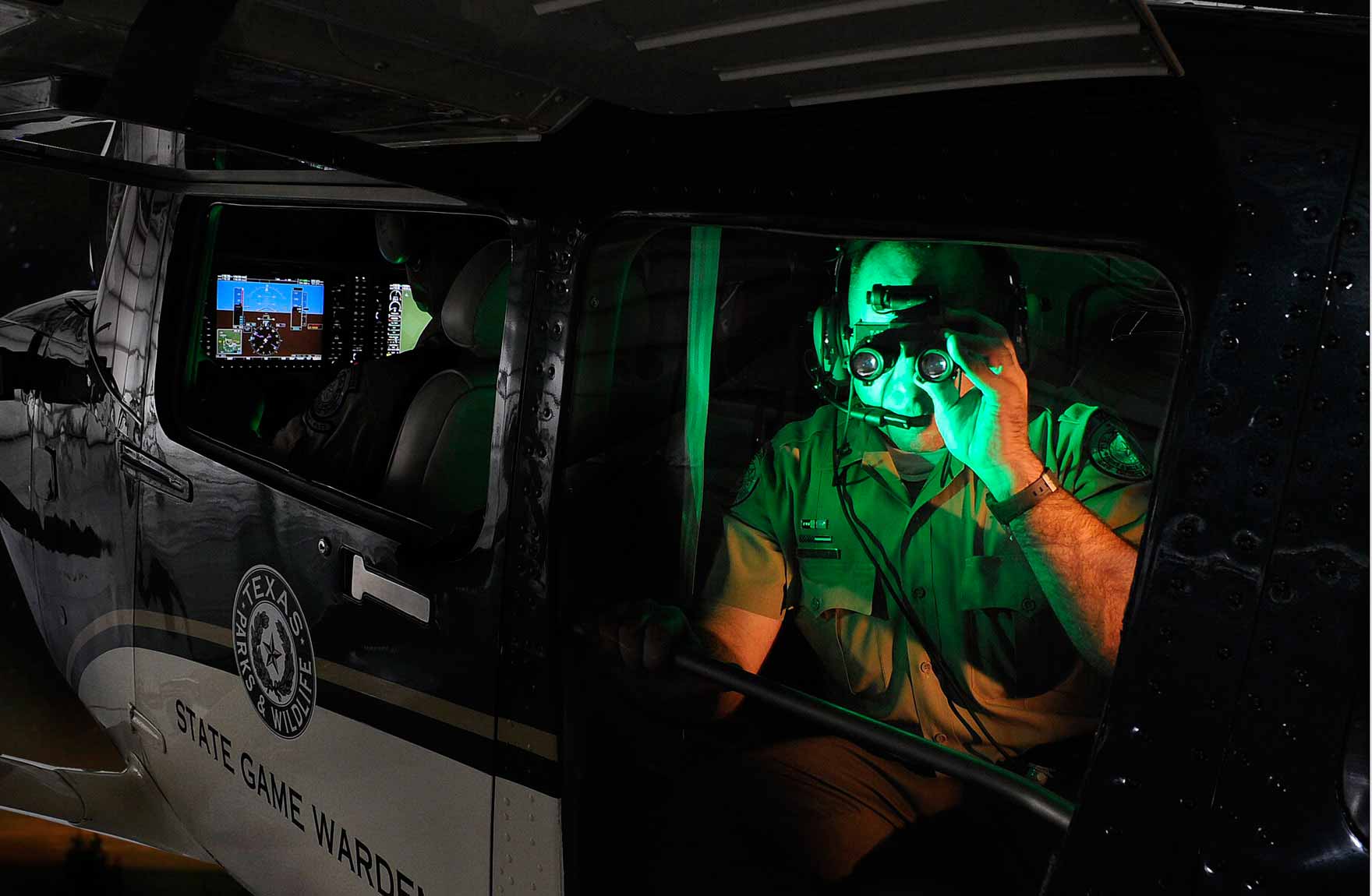
If Facing Armed Drug Smugglers, Call… Game Wardens?
A version of this story ran in the February 2014 issue.
Hostage negotiation. Narcotics enforcement. Border patrol. Fraud investigation. These may sound like the duties of a few distinct, highly trained law enforcement groups, and they usually are. But they’re also the purview of … game wardens?
A recent issue of Texas Parks & Wildlife, the department’s magazine, featured a lengthy article on several new specialty units comprised of game wardens, all of whom are fully commissioned peace officers. Some of the new groups are understandable, like the K-9 team used to detect smuggled game and fish, and a search-and-rescue team trained in disaster response, swift-water recovery and how to escape from a sinking helicopter. Additionally, there’s an underwater search-and-recovery dive team.
But the department also has a unit to investigate boat theft and boat-related fraud. Then there’s the “Forensic Reconstruction and Mapping Team” that uses state-of-the-art technology to piece together crime scenes and “produce 3D videos re-creating accidents.” The “Scout Team” is specially trained in “border operations, dignitary protection, or any form of high-risk law enforcement” such as hostage situations. And the “Maritime Tactical Operations Group” responds to “unique maritime operations,” presumably with the department’s five gunboats equipped with .30-caliber machine guns.
Mike Cox, who works for the Texas Parks and Wildlife communications department and wrote the article, says the gunboats patrol Falcon Lake and Lake Amistad, Texas’ border lakes, where they may have to confront illegal commercial fishermen or heavily armed drug smugglers. “We’ve always operated patrol vessels,” he observes, though “this is the first time we’ve had automatic weapons on some of them.”
He adds, “That’s perfectly within their jurisdiction, and we’re proud that they are there on the border being vigilant.”
Texas Parks and Wildlife isn’t alone in employing its own police force. The Texas Alcoholic Beverage Commission has more than 230 peace officers who carry weapons and make arrests. They usually solve alcohol-related crimes, says spokesperson Caroline Beck, inspecting licenses and finding out who served alcohol to a minor. But they also investigate drugs, weapons and human-trafficking crimes that take place in bars, “as well as just your normal prostitution and gambling.” Like game wardens, the enforcement duties of Texas Alcoholic Beverage Commission officers have no firm parameters. After Hurricane Katrina, they provided security at the George R. Brown Convention Center in Houston. During wildfires in Bastrop, they patrolled neighborhoods and rescued pets.
The Texas State Board of Dental Examiners is a little more reserved. Its 12 peace officers carry sidearms, but “physical custodial arrests are typically made by assisting local law enforcement agencies,” wrote Director of Enforcement Lisa Jones in an email. “The agency does not take a lead role in criminal investigations for any offenses not related to the practice of dentistry.”
The Texas Department of Insurance has 30 peace officers in its Fraud Unit, which investigates criminal offenses related to insurance. They too are armed and “adhere to the same use of force continuum as any law enforcement agency,” wrote spokesperson Jerry Hagins in an email.
Cox, of the Texas Parks and Wildlife Department, says none of this should come as a surprise. “We’ve always been a little frustrated that the general public does not seem to understand that game wardens are police officers,” he says. “That means they can enforce any state law. … I’d say every day, somewhere in Texas, one of our game wardens does something that is not connected to hunting and fishing law. And that’s a good thing.”
To support journalism like this, donate to the Texas Observer.

